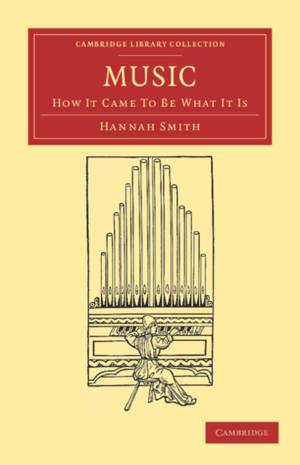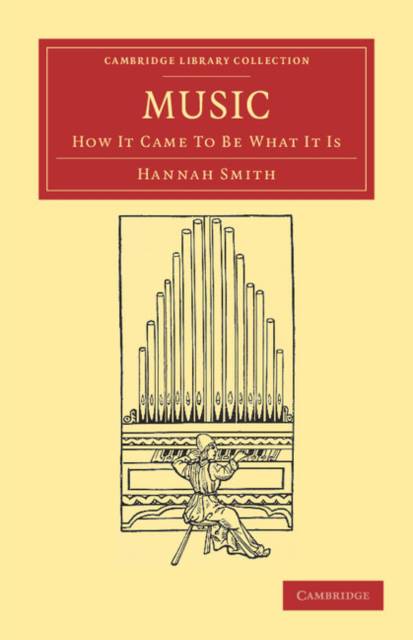
Bedankt voor het vertrouwen het afgelopen jaar! Om jou te bedanken bieden we GRATIS verzending (in België) aan op alles gedurende de hele maand januari.
- Afhalen na 1 uur in een winkel met voorraad
- In januari gratis thuislevering in België
- Ruim aanbod met 7 miljoen producten
Bedankt voor het vertrouwen het afgelopen jaar! Om jou te bedanken bieden we GRATIS verzending (in België) aan op alles gedurende de hele maand januari.
- Afhalen na 1 uur in een winkel met voorraad
- In januari gratis thuislevering in België
- Ruim aanbod met 7 miljoen producten
Zoeken
Omschrijving
Hannah Smith (1849-1939) was a composer for children and an educator. In 1903 she published the popular Founders of Music, a series of biographical sketches of composers written for children. Written in 1898, when Wagner had been dead for only fifteen years, this is a concise history of music and instruments, aimed at the enthusiast. Covering broad subjects rather than concentrating on a few composers, Smith discusses not just the development of musical styles but also how musical notation developed, how the ear functions and how musical instruments produce the sounds they do. The tastes of the time are evident, particularly in the surprisingly detailed discussion of the Oratorio: however, the book allows us to see how music and its progress were regarded at the turn of the twentieth century, before composers such as Stravinsky and Schoenberg shook the musical establishment.
Specificaties
Betrokkenen
- Auteur(s):
- Uitgeverij:
Inhoud
- Aantal bladzijden:
- 272
- Taal:
- Engels
- Reeks:
Eigenschappen
- Productcode (EAN):
- 9781108038812
- Verschijningsdatum:
- 20/10/2011
- Uitvoering:
- Paperback
- Formaat:
- Trade paperback (VS)
- Afmetingen:
- 140 mm x 216 mm
- Gewicht:
- 349 g

Alleen bij Standaard Boekhandel
+ 128 punten op je klantenkaart van Standaard Boekhandel
Beoordelingen
We publiceren alleen reviews die voldoen aan de voorwaarden voor reviews. Bekijk onze voorwaarden voor reviews.









